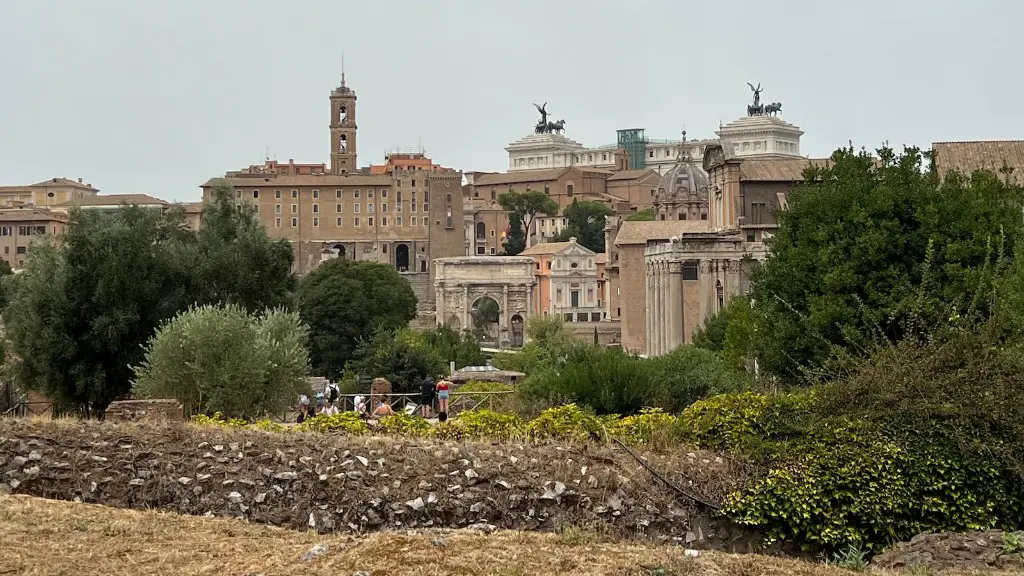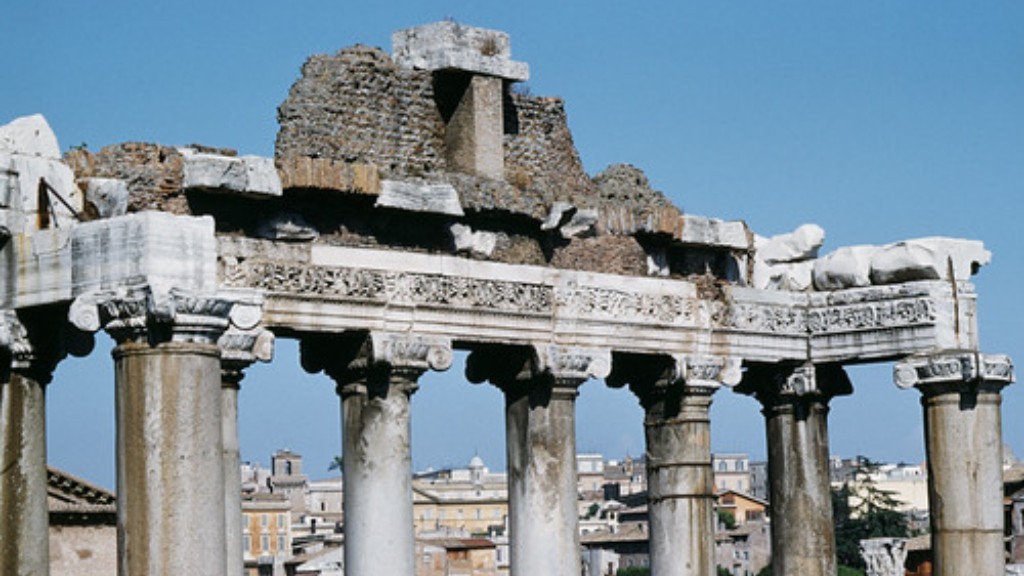Cleopatra is one of the most famous women in all of history. Her reign over Egypt had an immense impact on ancient Rome. From her alliances with Julius Caesar to her reign as Queen of the Nile, Cleopatra was an important figure in the Roman Empire and is remembered as one of its most powerful leaders. In this article, we’ll explore why Cleopatra was so important to ancient Rome.
Cleopatra was the last ruler of the Ptolemaic Dynasty, which had been in power since the death of Alexander the Great in 323 BC. She was born in 69 BC and ascended to the throne when she was 18. The Ptolemaic Dynasty had been in decline, and Cleopatra managed to reverse this by forming alliances with both Julius Caesar and Mark Antony, the two most powerful men in Rome. These alliances led to her exercising a considerable amount of influence on the politics of Rome.
Cleopatra’s early reign was defined by her presence in Rome. During this period, she managed to build a strong rapport with Julius Caesar, who later would make her his consort. This relationship was key to her being able to gain control of Egypt, as Caesar supported her rule. She was also able to persuade many other important Roman figures to support her, such as Marc Antony.
The impact of Cleopatra’s reign on Rome extended far beyond her political relationships. She managed to bring about an era of great prosperity, both in Egypt and in Rome. Under her rule, Egypt’s economy flourished and its political system stabilized. This in turn benefited Rome, as Cleopatra increased Egypt’s trade with the empire. This increased economic prosperity meant that the people of Rome had access to more goods and services, as well as more money to spend.
In addition to providing economic stability, Cleopatra had a huge influence on the culture of Rome. Her presence in Rome brought about an increase in knowledge about Egyptian customs and culture. Through her, Roman citizens were introduced to the language, literature, and religion of ancient Egypt. In addition, her skillful diplomacy and her keen strategic mind meant that she was able to broker several important treaties with her Roman counterparts.
Overall, Cleopatra’s impact on ancient Rome was immense. Her time as Pharaoh of Egypt saw an increase in economic prosperity, a significant improvement in cultural understanding and appreciation of Egyptian culture, and improved political stability. As such, she can be seen as one of the most important figures of the Roman Empire and is remembered fondly to this day.
Cleopatra’s Influence on Roman Culture
Cleopatra’s influence on Roman culture was far-reaching. Over the course of her reign, she managed to bring about a great appreciation of Egyptian culture within Rome. This included a better understanding of Egyptian customs, literature and religion. In addition, she was able to introduce the language of her native land – Ancient Greek – to Roman citizens. The result of this was that more educated Romans were able to access and understand the works of famous Greek scholars such as Plato and Hippocrates.
In addition to this, Cleopatra was also able to make significant contributions to the world of fashion and design. Indeed, she is credited with the invention of the stiletto heel and the practice of wearing makeup to accentuate the eyes, lips and other facial features. The latter in particular was incredibly popular within Roman society at the time, and many Roman women adopted the practice of wearing heavy amounts of makeup to imitate Cleopatra’s iconic look.
The enduring legacy of Cleopatra’s influence on Roman culture can be seen in its very fabric. Her achievements in fashion and design, in particular, remain very much part of the modern day fashion landscape. The use of makeup in particular has only become more popular throughout the centuries, with celebrities such as Kim Kardashian, Beyoncé and Rihanna just some of the many famous figures who take influence from Cleopatra’s iconic look.
Cleopatra’s Role in Roman Politics
Cleopatra played an essential role in Roman politics. Her alliances with both Julius Caesar and Mark Antony greatly strengthened her position in the Roman Empire. She was able to build strong relationships with these two powerful Roman figures, as well as many other leading figures within the Roman elite. As such, she was able to exercise a significant amount of influence over Roman politics, as she was able to broker treaties and establish political alliances with other rulers.
The most significant of these alliances was her relationship with Julius Caesar. This alliance proved to be incredibly beneficial for both parties, as Caesar was able to gain control of Egypt and Cleopatra was able to reverse the decline of the Ptolemaic Dynasty. Caesar’s support of Cleopatra’s rule allowed her to expand her control over the region, meaning that her influence extended far beyond her own kingdom. Furthermore, the presence of Cleopatra within the political circles of Rome allowed her to demonstrate her diplomatic abilities and to show that she was a capable leader.
As such, Cleopatra’s influence on Roman politics was immense. Through her alliances with Caesar and Antony, as well as her skilled diplomacy, she managed to build strong relationships with many Roman political figures. This allowed her to make significant contributions to the political life of the Roman Empire, and her legacy is still felt to this day.
Assessment of Cleopatra’s Reign
The reign of Cleopatra has been assessed in many ways over the centuries. From her adaptability and her skill in diplomacy, to her intellectual achievements, she has been viewed positively by historians. In particular, many acknowledge her ability to reform the government of Egypt and to turn its fortunes around. Her reign has also been credited with bringing about an increase in economic stability and prosperity, as well as the cultural understanding of Egypt.
In addition, many have praised Cleopatra for her intellectual achievements. Although she was born a commoner, she managed to become a political leader, a diplomat and a military strategist. Her success has been seen as a testament to her intelligence, as well as her adaptability. Her high level of education was also recognised, as her knowledge of Greek literature, science and philosophy was impressive. This was seen as significant, as it helped to spread knowledge of Greek culture and ideas throughout Rome.
Overall, the reign of Cleopatra has been viewed favourably by historians. Her achievements in terms of diplomacy, economics and culture have been praised, as has her legacy in terms of her influence on Roman politics. Her intelligence and her ability to adapt to her surroundings are seen as a testament to her greatness. As such, her memory is still revered by many today.
Cleopatra’s Legacy
The legacy of Cleopatra remains strong to this day. Her life and reign are still studied by many, as she is remembered fondly as one of the great leaders of the ancient world. Her influence can be seen in a variety of areas, from fashion to diplomacy. Her legacy is also felt in terms of her impact on Egyptian politics and economics, which she was able to reverse and improve.
Her legacy is also evident in the culture of today. Her iconic look, in particular, has been adopted by many famous figures and remains popular to this day. Her diplomatic prowess, too, is still respected, as politicians and leaders throughout the world are still influenced by her ability to build relationships with her opponents. Finally, her achievements in intellectual pursuits such as science, mathematics and philosophy are still acknowledged, and her intelligence is highly regarded.
Overall, the legacy of Cleopatra remains strong to this day. Her achievements in terms of diplomacy, economics, and culture continue to be remembered and respected, and her influence can be seen in many different aspects of life. As such, she will continue to be seen as one of the greats of the ancient world for centuries to come.
Conclusion
Cleopatra was a powerful figure in the Roman Empire and her influence can still be seen to this day. Her reign over Egypt saw a great increase in economic prosperity and political stability, as well as a better understanding of the culture of ancient Egypt. Additionally, she was able to build alliances with some of the most powerful figures in Rome, including Julius Caesar and Mark Antony, which allowed her to exercise a significant amount of influence over Roman politics. Ultimately, her impact on Rome was immense, and she is remembered fondly to this day as one of its most important figures.




